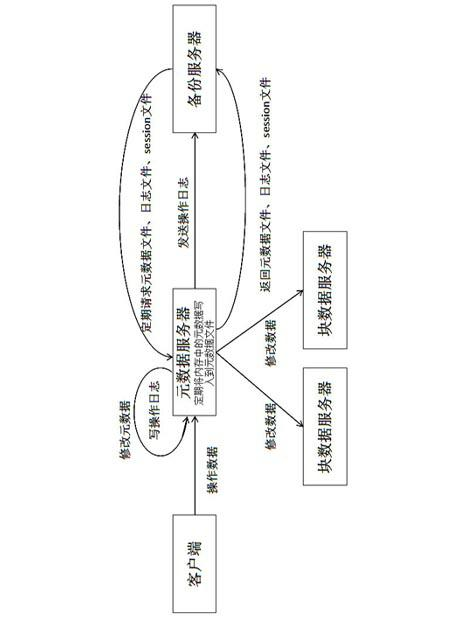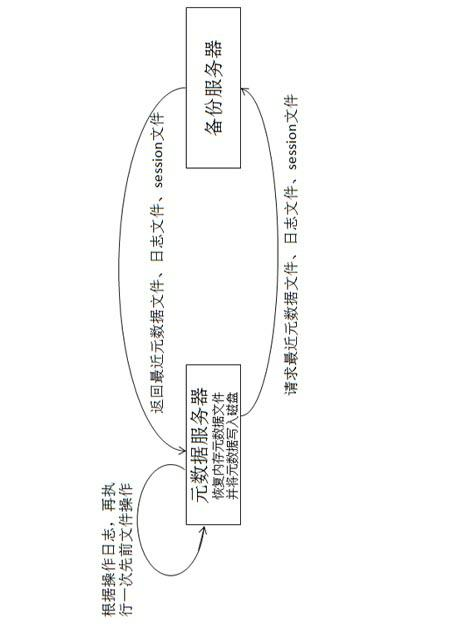Metadata fault-tolerant recovery method in distributed storage system
A technology of distributed storage and recovery methods, which is applied in the field of metadata fault-tolerant recovery in distributed storage systems, can solve problems such as data loss and metadata server performance impact, and achieve the effects of improving performance, ensuring reliability, and broadening prospects for development
- Summary
- Abstract
- Description
- Claims
- Application Information
AI Technical Summary
Problems solved by technology
Method used
Image
Examples
Embodiment
[0031] Let the metadata server store three types of metadata: the namespace of the file and the namespace of the chunk, the mapping from the file to the chunk, and the location of the replica of the chunk. All metadata is kept in memory. The first two types of metadata are kept constant by registering modifications to the operations log, which is stored on the metadata server's local disk and is replicated on several remote machines. Using logs allows us to easily and reliably update the state of the metadata server without inconsistencies even in the event of a metadata server crash. Because the metadata is stored in memory, the operation of the metadata server is very fast, and all requests to the metadata server will be responded in a very short time, thus ensuring the performance requirements of the metadata service.
[0032] The operations log contains a history of modifications made to metadata. It acts as a logical timeline defining the execution order of concurrent o...
PUM
 Login to View More
Login to View More Abstract
Description
Claims
Application Information
 Login to View More
Login to View More - R&D
- Intellectual Property
- Life Sciences
- Materials
- Tech Scout
- Unparalleled Data Quality
- Higher Quality Content
- 60% Fewer Hallucinations
Browse by: Latest US Patents, China's latest patents, Technical Efficacy Thesaurus, Application Domain, Technology Topic, Popular Technical Reports.
© 2025 PatSnap. All rights reserved.Legal|Privacy policy|Modern Slavery Act Transparency Statement|Sitemap|About US| Contact US: help@patsnap.com



